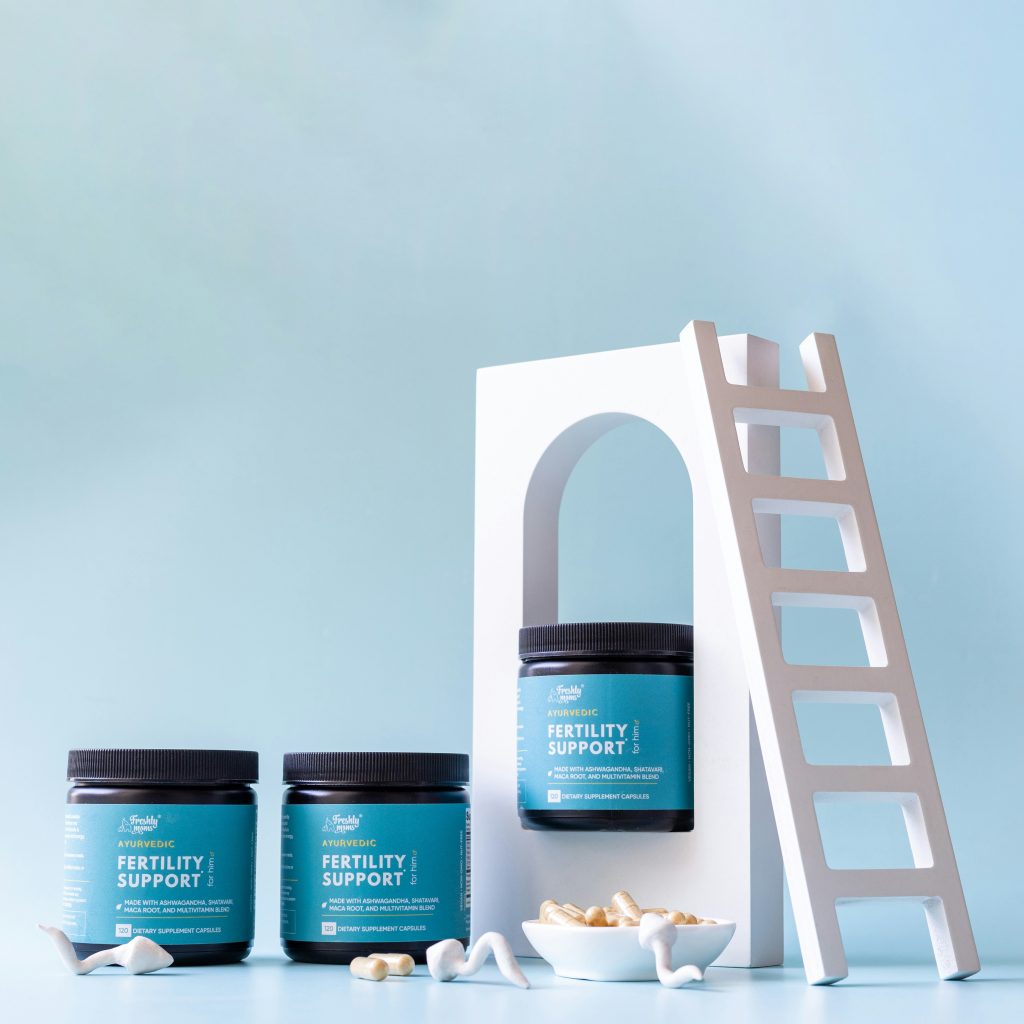Ad Blocker Detected
Our website is made possible by displaying online advertisements to our visitors. Please consider supporting us by disabling your ad blocker.
Boosting your testosterone levels may seem like a daunting task, but what if there were natural ways to achieve this? In the article “Can you naturally increase your testosterone levels?” we explore the possibility of enhancing your testosterone levels without any artificial interventions or extreme measures. If you’ve ever wondered if it is possible to have the coveted 1000 testosterone mark naturally, then this article is for you. Keep reading to uncover some surprising methods that may help you achieve optimal testosterone levels the natural way.

This image is property of images.unsplash.com.
What is Testosterone?
Definition
Testosterone is a hormone that is primarily produced in the testicles in men and in smaller amounts in the ovaries and adrenal glands in women. It belongs to a class of hormones known as androgens, which are responsible for the development and maintenance of male characteristics. Testosterone plays a crucial role in the growth and development of the male reproductive tissues, including the testes and prostate, as well as promoting secondary sexual characteristics such as increased muscle mass, bone density, and body hair. In women, testosterone is important for maintaining overall health, supporting libido, and contributing to bone strength.
Role in the Body
Apart from its impact on sexual characteristics, testosterone plays a vital role in maintaining overall health and well-being in both men and women. It regulates various bodily functions such as metabolism, mood, cognitive function, and cardiovascular health. Testosterone is also involved in the production of red blood cells, maintaining muscle mass and strength, and supporting healthy bone density.
Factors Affecting Testosterone Levels
Age
Testosterone levels naturally decline with age, with a gradual decrease beginning in the late twenties or early thirties. By the age of 40, testosterone levels typically decrease by about 1-2% per year. This decline in testosterone can result in symptoms such as decreased energy, reduced libido, muscle weakness, and mood changes. However, it is important to note that testosterone decline is a normal part of aging, and a slight decrease in levels is not necessarily a cause for concern.
Lifestyle Choices
Certain lifestyle choices can significantly affect testosterone levels. Factors such as physical activity, diet, stress levels, sleep patterns, weight management, and exposure to environmental toxins can all impact testosterone production.
Diet
Maintaining a healthy and balanced diet is crucial for optimal testosterone production. Nutrients such as zinc, vitamin D, magnesium, and omega-3 fatty acids have been shown to play a role in testosterone synthesis. Incorporating foods like lean meats, fish, eggs, nuts, seeds, and leafy green vegetables into your diet can help support healthy testosterone levels.
Exercise
Regular exercise is key to maintaining healthy testosterone levels. Both aerobic exercise and strength training have been shown to increase testosterone production. Engaging in activities such as weightlifting, resistance training, and cardiovascular exercises like jogging or cycling can help boost testosterone levels naturally.
Stress
Chronic stress can have a negative impact on testosterone production. When the body is under stress, it releases cortisol, a hormone that inhibits testosterone production. Managing stress through techniques like meditation, yoga, deep breathing exercises, or engaging in hobbies can help regulate cortisol and maintain healthy testosterone levels.
Sleep
Getting enough quality sleep is essential for hormone production, including testosterone. Studies have shown that inadequate sleep and disruptions in sleep patterns can lead to decreased testosterone levels. Aim for 7-8 hours of uninterrupted sleep each night to support healthy hormone production.
Weight Management
Maintaining a healthy weight is crucial for optimal testosterone production. Studies have found that obesity is associated with lower testosterone levels, as excess body fat can lead to increased conversion of testosterone to estrogen. Regular exercise and a balanced diet can help manage weight and promote healthy testosterone levels.
Vitamin D Levels
Vitamin D is a key nutrient that plays a role in testosterone production. Spending time outdoors in the sunlight, incorporating vitamin D-rich foods like fortified milk and fatty fish into your diet, or considering vitamin D supplementation can all help support healthy testosterone levels.
Medications and Health Conditions
Certain medications and health conditions can interfere with testosterone production. Medications like opioids, glucocorticoids, and some antidepressants can suppress testosterone levels. Additionally, conditions such as hypogonadism, diabetes, obesity, and chronic illness can contribute to low testosterone. If you suspect that your testosterone levels are being affected by medications or underlying health conditions, it is important to consult with a healthcare professional.

This image is property of images.unsplash.com.
Natural Ways to Increase Testosterone Levels
Regular Exercise
Engaging in regular physical activity is crucial for maintaining healthy testosterone levels. Aim for at least 150 minutes of moderate-intensity aerobic exercise or 75 minutes of vigorous-intensity aerobic exercise each week. This can include activities such as brisk walking, jogging, cycling, swimming, or playing sports.
Strength Training
Incorporating strength training exercises into your fitness routine can have a significant impact on testosterone levels. Focusing on compound exercises that target multiple muscle groups, such as squats, deadlifts, bench presses, and overhead presses, can help stimulate testosterone production.
High-Intensity Interval Training (HIIT)
HIIT workouts involve short bursts of intense exercise followed by periods of rest or lower-intensity exercise. This form of exercise has been shown to increase testosterone levels and improve overall fitness. Examples of HIIT exercises include sprints, bike intervals, or circuit training.
Optimal Diet
Eating a balanced diet that includes plenty of nutrient-rich foods can support healthy testosterone levels. Aim to consume a variety of fruits, vegetables, lean meats, fish, nuts, seeds, and whole grains. Avoid excessive consumption of processed foods, sugary snacks, and beverages, as they can negatively impact hormone balance.
Reduce Stress
Finding healthy ways to manage stress is important for maintaining optimal testosterone levels. Engage in activities that help you relax and unwind, such as practicing mindfulness, spending time in nature, pursuing hobbies, or seeking support from friends and loved ones.
Get Enough Sleep
Prioritize getting enough quality sleep to support healthy hormone production. Create a bedtime routine, ensure a comfortable sleep environment, and limit exposure to screens before bed to optimize your sleep quality.
Weight Management
Maintaining a healthy weight through regular exercise and a balanced diet is crucial for healthy testosterone production. Avoid crash diets or restrictive eating patterns, as they can negatively impact hormone levels.
Vitamin D Supplementation
Consider speaking with your healthcare professional about vitamin D supplementation, especially if you live in an area with limited sunlight or have low vitamin D levels. Supplementation may help support healthy testosterone levels.
Herbal Supplements
Certain herbal supplements, such as ashwagandha, fenugreek, and tribulus terrestris, have been suggested to have potential benefits in supporting healthy testosterone levels. However, it is important to consult with a healthcare professional before incorporating herbal supplements into your routine, as they can interact with medications or have side effects.
Avoid Excessive Alcohol Consumption
Excessive alcohol consumption has been shown to negatively impact testosterone levels. Limiting alcohol intake or avoiding it altogether can help maintain healthy hormone balance.
The Importance of Healthy Lifestyle Choices
Effects of Unhealthy Lifestyle Choices
Unhealthy lifestyle choices, such as a sedentary lifestyle, poor diet, chronic stress, lack of sleep, and excessive alcohol consumption, can have a negative impact on testosterone levels. These factors can contribute to low testosterone, which can result in symptoms such as decreased energy, reduced libido, muscle weakness, and mood changes.
Beneficial Practices
Incorporating beneficial lifestyle practices, such as regular exercise, a balanced diet, stress reduction techniques, adequate sleep, and moderation in alcohol consumption, can help support healthy testosterone levels. These practices not only promote optimal hormone production but also contribute to overall health and well-being.

This image is property of images.unsplash.com.
Foods That May Boost Testosterone Levels
Oysters
Oysters are rich in zinc, a nutrient that plays a crucial role in testosterone production. Zinc deficiency has been linked to low testosterone levels, and consuming foods high in zinc, like oysters, can help support healthy hormone production.
Lean Meats
Lean meats, such as beef, chicken, and turkey, are excellent sources of protein and important nutrients like vitamin B12 and zinc. Including lean meats in your diet can help support testosterone production.
Eggs
Eggs are a nutrient-dense food that can contribute to healthy testosterone levels. They are a great source of protein, vitamin D, and cholesterol, which is a building block for testosterone synthesis.
Shellfish
Shellfish, including crab, lobster, and shrimp, are rich in zinc and other essential nutrients. Adding shellfish to your diet can help support healthy testosterone levels.
Fish
Fatty fish, such as salmon, trout, and sardines, are excellent sources of omega-3 fatty acids. These healthy fats have been shown to support testosterone production and overall health.
Fortified Milk and Cereals
Fortified milk and cereals are often fortified with vitamin D, an essential nutrient for testosterone synthesis. Including these foods in your diet can help ensure adequate vitamin D levels.
Beans and Legumes
Beans and legumes, such as lentils, chickpeas, and black beans, are rich in nutrients like zinc, magnesium, and protein. Incorporating these foods into your diet can support healthy testosterone levels.
Nuts and Seeds
Nuts and seeds, such as almonds, walnuts, and pumpkin seeds, are rich in healthy fats, protein, and minerals. These nutrients are important for testosterone synthesis and overall health.
Garlic
Garlic has been shown to have potential benefits in supporting healthy testosterone levels. Adding garlic to your meals can be a simple way to incorporate this beneficial ingredient into your diet.
Exercise and Testosterone Levels
Effects of Exercise on Testosterone
Regular exercise has been shown to increase testosterone levels. Engaging in physical activity stimulates the release of testosterone, promoting muscle growth and overall health. Both aerobic exercise and strength training have been found to be beneficial for testosterone production.
Recommended Exercise Intensity and Duration
To maximize the benefits on testosterone levels, it is recommended to engage in a variety of exercises. Aim for at least 150 minutes of moderate-intensity aerobic exercise, such as brisk walking or cycling, or 75 minutes of vigorous-intensity aerobic exercise, such as running or swimming, each week. Additionally, incorporate strength training exercises at least two days a week to further support testosterone production.
The Role of Strength Training
Benefits of Strength Training
Strength training, also known as resistance training or weightlifting, offers numerous benefits for testosterone production. It stimulates the release of testosterone, promotes muscle growth, and helps maintain healthy bone density. Strength training exercises target specific muscle groups and can be customizable based on individual fitness levels and goals.
Types of Exercises
There are various types of strength training exercises that can be incorporated into a fitness routine. These include compound exercises, such as squats, deadlifts, bench presses, and overhead presses, which work multiple muscle groups simultaneously. Additionally, isolation exercises like bicep curls, tricep extensions, and calf raises can target specific muscle groups for a more targeted approach.
High-Intensity Interval Training (HIIT)
Benefits of HIIT
High-Intensity Interval Training (HIIT) is a form of exercise that involves short bursts of intense activity followed by periods of rest or lower-intensity exercise. HIIT has been shown to increase testosterone levels and improve overall fitness. It offers benefits such as improved cardiovascular health, increased metabolism, and time efficiency.
Sample HIIT Routine
A sample HIIT routine could include exercises such as sprints, bike intervals, or circuit training. For instance, sprinting for 30 seconds at maximum effort followed by 1 minute of walking or slow jogging, repeated for a total of 10-15 minutes, can be an effective HIIT workout. It is important to adjust the intensity and duration of HIIT workouts based on individual fitness levels and consult with a healthcare professional if needed.
Optimal Diet for Testosterone Production
Macronutrient Balance
A balanced diet that includes a proper ratio of macronutrients is crucial for testosterone production. Aim to consume a combination of carbohydrates, proteins, and healthy fats. Carbohydrates provide energy for workouts, while proteins support muscle growth and repair. Healthy fats, such as those found in nuts, seeds, avocados, and fatty fish, contribute to hormone production.
Key Nutrients for Testosterone
Certain nutrients are particularly important for testosterone production. These include zinc, vitamin D, magnesium, and omega-3 fatty acids. Foods rich in these nutrients, such as lean meats, fish, fortified milk, nuts, seeds, and leafy green vegetables, should be included in a testosterone-supporting diet.
Foods to Include
Incorporate a variety of nutrient-rich foods into your diet to support testosterone production. Focus on lean meats, fish, eggs, dairy or plant-based alternatives, whole grains, fruits, vegetables, nuts, and seeds. Avoid excessive consumption of processed foods, sugary snacks, and beverages, as they can negatively impact hormone balance.
Can Natural Methods Help in Increasing Testosterone Levels Beyond the Body’s Natural Limit?
Yes, natural methods can help in increasing testosterone levels beyond the body’s natural testosterone levels limit. Regular exercise, a nutritious diet, stress reduction, and adequate sleep are all beneficial in naturally boosting testosterone levels. Additionally, certain herbs and supplements are also known to support healthy testosterone production.
Conclusion
While testosterone levels naturally decline with age, there are various lifestyle factors and behaviors that can help support healthy testosterone production. Engaging in regular exercise, incorporating strength training and HIIT workouts, maintaining a balanced diet, managing stress, getting enough sleep, and maintaining a healthy weight are all crucial for optimal testosterone levels. Additionally, certain foods, such as oysters, lean meats, eggs, fish, and garlic, can provide nutrients that support healthy testosterone production. By adopting these strategies and making positive lifestyle choices, you can naturally enhance your testosterone levels and promote overall health and well-being. Remember to consult with a healthcare professional if you have any concerns or questions regarding your testosterone levels or any changes to your lifestyle or diet.



